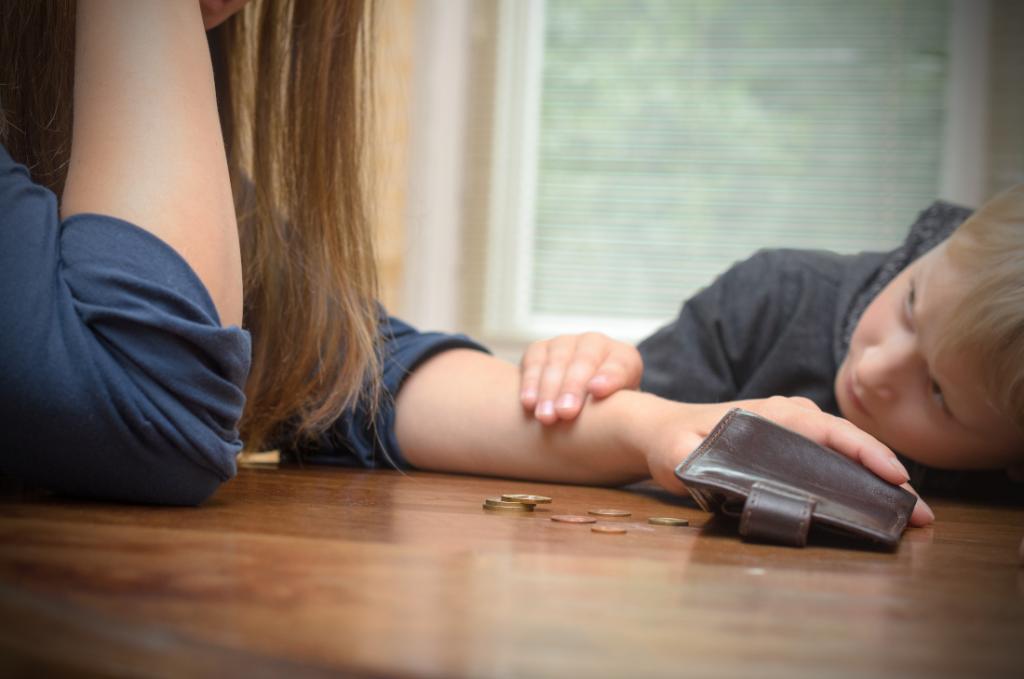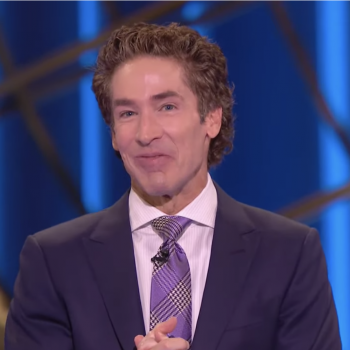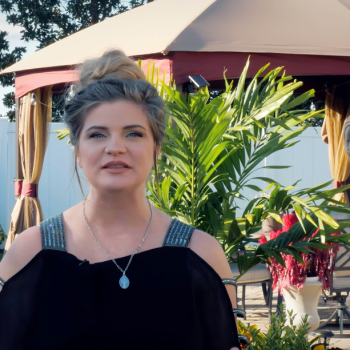If you don’t make enough money, you should be able to receive assistance from the government until you’re able to get back on your feet. That’s, in essence, what welfare payments are designed to do. In Utah, there are two ways to get that kind of help: You can get it from the government if you are living below the poverty line… and you can also get it as a member of the Mormon Church.
None of that is surprising just yet. But in an article by Eli Hager, published by ProPublica and The Salt Lake Tribune, we find out there’s a mixing of those two worlds that shouldn’t be happening and it’s putting welfare recipients in a legally dubious situation:

Although maintaining a safety net for the poor is the government’s job, welfare in Utah has become so entangled with the state’s dominant religion that the agency in charge of public assistance here counts a percentage of the welfare provided by the LDS Church toward the state’s own welfare spending, according to a memorandum of understanding between the church and the state obtained by ProPublica.
What that means is that over the past decade, the Utah State Legislature has been able to get out of spending at least $75 million on fighting poverty that it otherwise would have had to spend under federal law, a review of budget documents shows.
By basically outsourcing a portion of their budget (meant to fight poverty) to The Church of Jesus Christ of Latter-day Saints, they’re putting some people — those just above the poverty line — in the position of having to become Mormon in order to get the help they need. Or at least in the position of pretending to be Mormon.
That overlap obviously violates the principle of church/state separation, but it’s also a concern for anyone who doesn’t live according to Mormon beliefs or doesn’t want to lie in order to get help. If you’re in a same-sex marriage, for example, and in need of welfare benefits, the LDS Church may not assist you since you’re not obeying their religious dogma. The government should help you since it’s not allowed to discriminate… but, again, Utah’s government isn’t doing its job in order to make room in the budget.
As of 2019, the state was providing direct assistance to about 3,000 families out of nearly 30,000 living in poverty…
Utah doesn’t do more for those in need in part because a contingent of its lawmakers, the overwhelming majority of whom are Latter-day Saints themselves, assume the church is handling the poverty issue; they also are loath to raise taxes to do the state’s share, a review of Utah’s legislative history demonstrates.
Sometimes, Hager notes, state caseworkers point people in the direction of the LDS Church if the state can’t help them. It’s meant to be helpful advice — an alternative way to get benefits — but that also means the state is directing people to go to a religious institution, something it shouldn’t be doing at all.
There’s an open question as to whether this relationship is illegal. Whatever the answer is, though, it’s seriously unethical. And I’m hesitant to blame the Mormon Church here. They’re allowed to be restrictive in who they help, and they’re under no obligation to help anyone at all. The fact that they have giant mounds of cash is a separate issue; the fact is they’re more generous than most other religious groups. The problem is that Utah’s government is relying on the Church to fill a budget hole.
To put it more bluntly, a bunch of Mormon lawmakers are steering people to the Mormon Church because they refuse to make the politically risky decision of raising taxes to help the poor.
No one should have to rely on the generosity of a conservative bishop to stay alive. That’s especially true when someone isn’t (and doesn’t want to be a) Mormon.
In another case, Jo Alexander, who is lesbian, says she was desperate for a hotel room during a period of homelessness. But she knew she couldn’t get public assistance from the state because she had received it around two decades ago as a young woman and therefore had exceeded her lifetime limit under another of the rules implemented under welfare reform. As a result, she went to a bishop.
Despite being raised as a member of the church, she was denied. She says it is known in the community that she is gay and she believes that was the reason for her rejection.
It’s political malpractice mixed with religious bigotry, and the end result is that people suffer.




It’s Moving Day for the Friendly ..."
It’s Moving Day for the Friendly ..."
It’s Moving Day for the Friendly ..."
It’s Moving Day for the Friendly ..."